- Home
- Tarryn Fisher
The Wrong Family Page 17
The Wrong Family Read online
Page 17
Juno knew about Skinner and his rats, had studied his methods in school, so her aversion to wet grass was just a fact. It was how humans worked, picking up pieces of their experiences and choosing to fall either to the pain or triumph. If anything, Juno was just sad it had to be that way, that she associated terrible things with something she once loved. She suddenly felt hot all over as she had that day, before she slipped into that fevered sleep. The last thing she’d seen before her eyes had sealed shut was a blade of grass, so lush and bright she’d focused on it with all her might, her teeth clacking together. There were a hundred drops of the finest rain clinging to that one blade of grass. It was sharp around the edges, like the blades of her old carving knife. Juno had looked closer and seen that there were tiny writhing hairs, reaching their little arms toward her grotesquely. You’re not really seeing what you’re seeing, she’d thought. You’re sick, not stupid. And then she’d blinked a few times, her vision clearing. She’d had to remind herself to see things from the right perspective. It was just too much thought about grass, and when Juno woke up in the hospital, she found she hated it, simple as that. There was no grass in the crawl space, though, just dirt, dirt, dirt.
Enough is enough, she told herself. Get your chores done and crawl back into your hovel.
Or maybe that can wait, Juno thought as she spotted the family computer sitting dormant on the desk. It was the grass that made her want to do it, remembering how she’d blinked a few times, gained perspective and had seen the right thing: an inch-long blade of grass with two little drops of water balancing on its tip; something simple that her feverish brain had made ugly. You’re doing the same thing with Winnie that you did with that grass. You’re making her the enemy.
Yes, that was what she was doing. But still. She couldn’t leave without checking Winnie’s search history. Maybe that would give her some answers.
Juno scanned over the last few days of internet search history. Just a lot of normal shit like vegan recipes and celebrity gossip...and there it was. On Thursday night, Winnie had searched for a Josalyn Russel at 11:30 p.m.—hours after she usually went to bed. What she’d seen in the envelope must have left such a sour impression on Winnie’s mind that she’d lain awake for two hours before finally going to her computer. That’s what Juno imagined, anyway.
So there it was: Winnie had received Juno’s envelope in the mail, and then, when Nigel was in bed, had searched for this woman on the internet. She clicked on the link, the last website Winnie visited, and it took her to the article that Winnie had been reading.
Juno rubbed a square of her shirt between her thumb and index finger as her eyes scanned the article. She was braced for something, but she wasn’t sure what. She had always prided herself on excellent gut intuition. What she felt about people was usually right, and from the moment she’d moved in, she’d had a feeling. She read through the article twice, making sure she didn’t miss anything.
The article was about Tent City. Juno’s eyes stretched to their full capacity. She’d spent some—but not a lot—of time in Nickelsville, Seattle’s portable, self-managed tent community. Intended as a temporary answer to the lack of bed space in shelters, they got by. Their purple tents were donated by the First Methodist Church of Seattle, and a rotating security guard kept loose order. She’d been there a few weeks when a rogue band of meth-heads staged a coup and took control. In the words of her mother and Ray Charles: hit the road, Jack. She did, but her options were either finding a bench, or joining those who set up camp in wooded areas along I-5. Juno chose the latter. But why would Winnie be interested in a homeless camp?
Juno devoured the article, looking for something that could possibly be of interest to Winnie. Thousands of teenage runaways go missing every year, the article said, their families never hearing from them again.
And then Juno found it: a quote from Winnie Crouch, an employee at Illuminations for Mental Health at the time.
“There are women in these camps, very young women like you and me who are living hand to mouth, with no sanitation or access to medical help. In fact, one of the young women I work with was pregnant and living in a tent when she disappeared.”
22
WINNIE
She lay in bed, listening to the sound of the crickets in Greenlake Park, drifting toward sleep. The trip to the cabin had been as horrible as she had anticipated—worse even. She couldn’t wait to get home. But now here she was, back in her own bed, feeling just as horrible as she had then.
Someone was working against Winnie. At first she thought she was being paranoid, which was her MO anyway—poor, paranoid Winnie. But there was no way to explain the notepad, or the library book, or the envelope that had come in the mail with those clippings inside it. Deep down, she knew she’d told Nigel only half the story, established a firm villain all those years ago—Josalyn Russel.
Josalyn Russel hadn’t left her home and family because she was a drug addict; she’d become one as a result of what they’d done to her. Josalyn had run away from home three months shy of her eighteenth birthday. She stayed under the radar for those three months, and then, when she turned eighteen, came forward to access social services. She was bipolar and in need of medication. When Winnie was assigned her case, Josalyn had been a wisp of a girl, no more than a hundred pounds. She kept earbuds in her ears at all times, her message clear: she was not offering conversation. Winnie didn’t push her, she never pushed them. She was there to be an advocate for Josalyn in a world that didn’t understand her. On her arms were delicate tattle-tale scars of years of self-harm. She was a runaway: defiant, nonverbal, and had severe trust issues. She liked junk food—Funyuns and drinks that were blue. Winnie paved an avenue for trust with snacks.
Josalyn began talking a little. First, it was about home—her parents divorced, and her mother remarried a younger man. Then one day, she told Winnie her stepfather had molested her. “His friends, too,” she’d told her, looking at the floor. “He passed me around, and when I cried, he acted like it had been my idea.”
Josalyn wanted to stay under the radar; Winnie saw genuine fear in her eyes when she spoke about her stepfather. Her family had money—a lot of it, she claimed—and they used it to get what they wanted. Winnie now understood the rainbow curtain of hair she wore around her face; she retreated behind it when she needed space. So Winnie bought her more hair dye—pink and green and blue—and they developed a mentorship. Winnie was fond of the girl, protective. She’d seen what the world did to women like Josalyn and was afraid for her.
And then Josalyn became pregnant. She said she didn’t know who the father was, and by then, she was spending the night in a tent and paying for her drugs with sex.
She hardly ever came to group, and she only met with Winnie when she needed something. Winnie tried to appeal to Josalyn on behalf of the baby, offering her programs, help, detox, but she’d wanted to keep her baby.
“It’s mine. I’m keeping it,” she’d said.
“Josalyn, you live in a tent. A tent isn’t a home for a baby. Social Services will get involved. They’ll take the baby from you.”
“No,” Josalyn said flatly. Her eyes were dull like she was checking out. Winnie softened her voice.
“Your family, Josalyn. We can contact someone in your family—they can help.”
That’s when Josalyn’s demeanor changed, terror rising in her eyes instead of tears.
“No,” she said firmly. “Never ever. It’s better to live in a tent than with them.”
When Winnie tried harder to make her see that she wouldn’t be able to keep her baby, Josalyn had run. Winnie tried to find her, going as far as Tacoma, asking shelters about a pregnant, homeless woman with multicolored hair. No one had seen Josalyn, and Winnie’s guilt took on a new corridor in her life.
Winnie rubbed her eyes. She needed to sleep; she couldn’t think clearly anymore. She tossed and turned in her bed. How
could anyone know about that night? What she’d done. She had been alone with Josalyn in that tent.
The call had come in the middle of the night and she’d slept through it, since she silenced her phone after 8:00 p.m. She’d woken up to use the bathroom and there was the missed call, lighting up her screen. Winnie had carried the phone into the bathroom and hit play on the voice mail as she peed. Josalyn’s voice came through, shaky, her words as discombobulated as the noises behind her.
“I had the baby. It’s not good, I’m not good. You said you’d help. I’m living in a tent near the overpass in Ravenna. Please...” And then the line had gone dead. Winnie called the number back right away, still sitting on the toilet, but it just rang and rang.
What she remembered vividly were the conditions she’d found them in: the piles of trash, the smell of sick and shit so overpowering Winnie had taken two giant steps back, into the fresh air, and promptly thrown up. When she’d composed herself, washing her mouth with the bottled water she’d put into her bag, she stepped back into Josalyn’s tent. In her attempt to keep the baby warm, Josalyn had made a nest for him out of blankets, wedging him between her own body and that of her dog, who stared at Winnie balefully, unmoving.
Josalyn’s face was pale, almost greenish along her eyes and jaw. She lay very still next to the bundle, a threadbare towel draped over her body. The smell of death was so present that Winnie’s eyes had immediately gone to the baby and stayed there.
The child was her priority; the child had not asked to be put in this dire situation. She had to get him to safety first. She could reach him if she crawled around Josalyn; and so without thinking, Winnie dropped to her knees and crawled over the human and animal waste, the heel of her hand landing in dried vomit. The dog whined from where he lay, one drooping eye watching Winnie.
She closed her eyes, focusing on everything she was feeling on the inside: her desperate need to reach the child, the urgency, the adrenaline that was pounding past her hesitancy. What she was seeing and touching and smelling wasn’t important; the baby was important. When her hand reached to touch the pale cheek of the baby, he stirred, and Winnie felt a mass of joy, thick and sustaining. Alive!
He was tiny, his weight no more than five pounds. Gently unwrapping him from the blankets Josalyn had used, Winnie lifted him from the cocoon and saw that he was wearing an Elmo onesie that was a size too large—relatively clean aside from his bulging diaper. Winnie eased him feetfirst into her jacket until he was pressed against her chest, splayed out like a little turtle. It would have to do until she could get him somewhere warm. Winnie zipped it up around him, leaving enough room for air to get inside. For the first time in her life, she was grateful that she didn’t have huge breasts, which would have been suffocating to this small creature. Still on her hands and knees, she bent her head to peer inside her jacket where the baby lay, curled as if in a hammock; he was breathing, but not deeply. She crawled back out into the twilight, away from the smell and the filth, gulping in the sharp winter air.
It was bitterly cold; she had to get him to her car, and quickly, but it was parked up the steep embankment and nearly a mile away. Her only option was to scale the frost-slicked grass on her hands and knees. Winnie crawled; she was terrified of slipping. Keeping one hand firmly on the bundle against her chest, she picked her way to the top, never once looking down at Josalyn’s tent, which hung in the mist below her, never once thinking about her. When she reached the top, she straddled the metal railing and swung her legs over the side, landing squarely on the asphalt. And then Winnie took off, racing for her crisp white BMW, which still smelled of new car. She was parked along a skiff of grass between a cluster of houses. She could see them up ahead as her breath chuffed out in bursts of white. She wasn’t thinking about anything but the baby when she climbed into the front seat and jerkily pulled the SUV out of the grass.
If she’d just called an ambulance right away.
She’d meant to—as soon as she got the baby safely to the car. But that’s where everything had gone wrong, so wrong...
23
JUNO
Juno broke the cable box. That was her big plan. She unplugged the whole thing and then, lifting it above her head, threw it at the carpeted floor in Nigel’s den. Once lightly...twice...she heard something rattle loose the third time. Then she put everything back the way she found it and waited. Nigel holed up in his den, watching an endless stream of CNN and ESPN for his mindless entertainment. To fuck with his cable box was to fuck with his precarious mental stability. But that’s what Juno wanted—everyone unstable, so she could get some answers.
Nigel spent two days arguing with the cable company over the phone. Juno, who risked a night in Hem’s Corner to hear everything, for once appreciated his loud anger. No, he would not be paying for a replacement...no, it was their faulty box, not his inability to handle it... Yes, he needed someone to come out, hadn’t he been saying that all along? The soonest was when! No, that wasn’t acceptable, there was a game he wanted to watch this weekend and he would not be put out by their incompetence...if that’s all they had...Thursday. “And can you give me a window, so I know when to be home?”
“That’s an eight-hour window!” She could almost hear the defeat in his voice. “Fine. Yes... I’ll leave the alarm off for the day and the back door unlocked. If your guy can give me notice when he gets here and leaves so I can come and lock up. Is it in the notes? Put it in the notes.”
On Thursday morning, Juno was waiting in the closet by what she guessed was 5:00 a.m. She’d had a carton of chocolate milk to drink and a few oyster crackers before she came up, and the sugar was making her feel squirmy. Squirmy was better than limp, she thought. She was wearing a gray Seahawks hoodie with the hood pulled up and a pair of Nigel’s giveaway jeans, belted with twine Juno had found in Winnie’s craft drawer. Nigel always left earlier than Winnie, usually heading out the door by six, and she wanted to be ready. On her feet were the same sneakers she’d worn the day she moved in—since they’d brought her here in the first place, she wore them for luck.
Nigel’s steady, methodical footsteps echoed above Juno’s head. She crouched beneath the coats and costumes, breathing through her nose and smelling the faint aroma of urine. A cough stirred at the back of her throat, and she tried to swallow it down before it became a thing. That was one of her biggest fears—discovery by coughing. Her thighs burned, muscles she hadn’t used in weeks being forced to hold her weight, however slight she was. His boots were on the stairs now; soon he’d put off the alarm and open the closet to grab his bag. Juno heard him clear his throat, then the faint beeping of buttons as he tapped in the code, disarming the alarm. The code was Sam’s original due date: 0602. She’d once overheard Winnie reminding Dakota of it. The door opened and closed, and Nigel was gone. He hadn’t taken his gym bag today, and she stared at it hard before crawling over. She checked the zippers first, then the inside. There was a five stuck in the inside pocket; she smoothed it out on her knee and kept looking. She pushed past a change of clothes and a small bottle of cologne. At the bottom of the bag was an Altoids tin that didn’t rattle with mints when she nudged past it. Juno brought it out and flipped open the lid. She didn’t have time for this; Sam would be waking up any moment.
Her mouth went dry as she stared down at a credit card, a wad of twenties that looked like it amounted to about five hundred dollars, and a single, foil-wrapped condom. She unwrapped a twenty from the wad and shoved it into her pocket with the five. What she did next didn’t surprise her as much as it amused her. Juno crawled back to the hot dog costume, the one she liked to hold against her face. She’d had a big surprise one day when the tip of a safety pin had jabbed her in the cheek. She’d reattached it to the hot dog, the sharp pin tucked away. Now she retrieved the pin with only minutes to spare; Sam was in the bathroom. With the aspirin coating her pain, Juno was actually pretty fast. She liked the way it felt to stick the sharp
end of the safety pin past the foil and into the rubbery onionskin beneath it. She pushed the pin all the way through. Then she put everything back the way she found it; that was the trick. Juno was out the front door before Sam had even flushed the toilet. She had an eight-hour window.
* * *
At three-thirty, she carried a bag of cereal she bought at the Dollar Tree to a bench by the water. Pulling open the plastic, she sprinkled a handful across the dirt and in two seconds she was surrounded by the blue-barred chests of a dozen pigeons. They pecked away, stoic, their amber eyes casting Juno sidelong glances. She didn’t prefer these little rats with wings, but they were always the first to come.
“There are usually three turtles over here.”
Juno jumped, almost dropping the bag. The sun was out—a rare moment—and it was shining directly into her eyes, temporarily blinding her. But she knew that voice, she knew it well.
Samuel was standing close to the water, right where the dirt dipped into the lake at a sharp angle. He was wearing a green hoodie and a ratty pair of jeans, and a backpack much like Nigel’s was slung over his shoulder. He wasn’t looking at her; his eyes were focused on the lily pads a few feet beyond the mud. Juno knew that’s where the turtles usually rested, craving sun like the rest of the folks in Washington.

 Jackal
Jackal F*ck Love
F*ck Love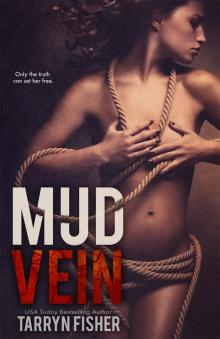 Mud Vein
Mud Vein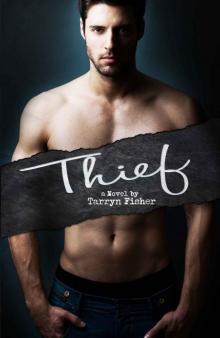 Thief
Thief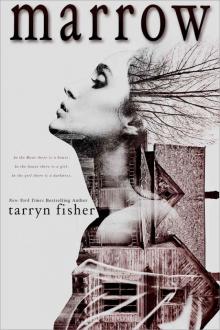 Marrow
Marrow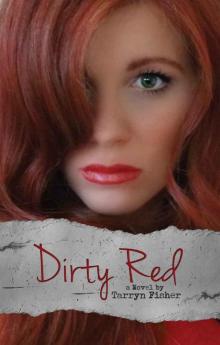 Dirty Red
Dirty Red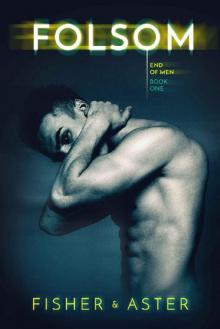 Folsom
Folsom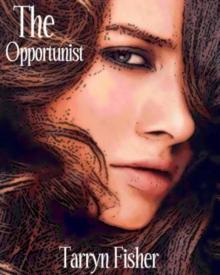 The Opportunist
The Opportunist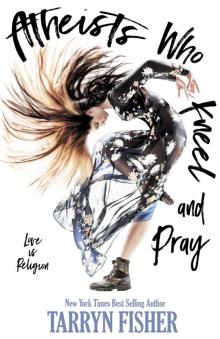 Atheists Who Kneel and Pray
Atheists Who Kneel and Pray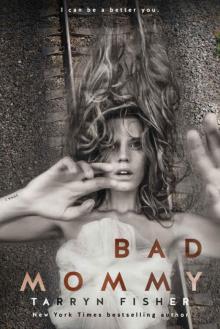 Bad Mommy
Bad Mommy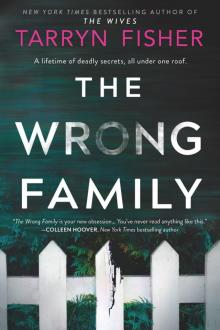 The Wrong Family
The Wrong Family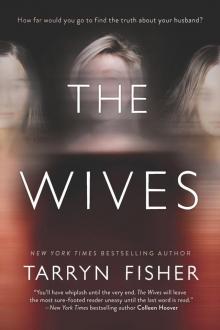 The Wives
The Wives Jackal (The End of Men Book 2)
Jackal (The End of Men Book 2)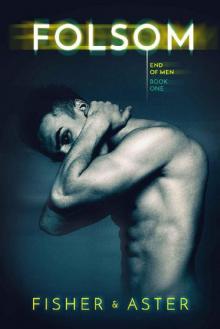 Folsom (The End of Men Book 1)
Folsom (The End of Men Book 1)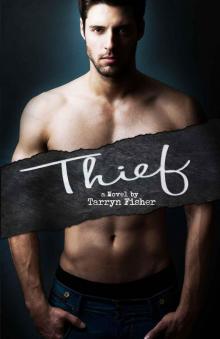 Thief (Love Me With Lies #3)
Thief (Love Me With Lies #3)